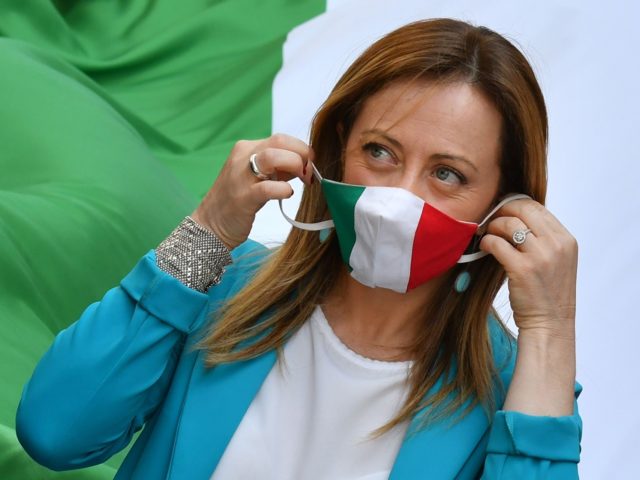Members of the national-conservative Brothers of Italy (FdI), including its firebrand leader Giorgia Meloni, have railed against big tech censorship and demand regulation to protect free speech.
Senator Federico Mollicone, the national head of innovation at the Brothers of Italy, called out the government after social media giant Facebook suspended an Italian satirical page. The black-out lasted a few hours before the page was restored.
Mollicone said that despite the reinstatement, he would move forward with legislation against big tech power, Il Giornale reports.
“We will present the motion, anyway, because a simple report against a public figure like Federico Palmaroli, with more than a million followers, should not lead to the account being blacked out,” he said. The Brothers of Italy politician added: “Only [government] authority can establish the lawfulness or otherwise of online content, and therefore, the right to authorise its possible removal.”
Mollicone questioned what the Italian leftist government intends to do to preserve freedom of expression online and stated that Italy has a limited number of regulations and other instruments to stop big tech censorship.
Giorgia Meloni, head of the FdI, also said: “The EU confirms its weakness, the United States risks a civil war, and in amongst all this, the large multinationals of the web are questioning the right of expression of citizens and their representatives.”
Over last several months, Meloni’s party, a member of Matteo Salvini’s centre-right coalition, has become a major force in Italian politics, going from single digits in the European Parliament elections in 2019 to current polls showing the Brothers of Italy having polled over 17 per cent, which would make them the third-largest party in the country if repeated at the ballot box.
Tech censorship has been a major issue in the United States for years and culminated in the banning of former President Donald Trump earlier this month.
While many on the left celebrated the move, German Chancellor Angela Merkel criticised it, calling the action “problematic” and said that companies should only intervene in freedom of expression along the laws defined by governments.
The Italian comments follow concrete moves in other European countries, including in Poland and Hungary, to guarantee free speech online.

COMMENTS
Please let us know if you're having issues with commenting.